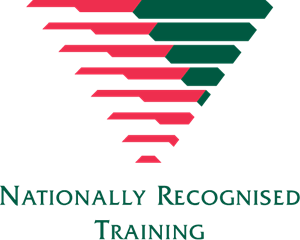Job Roles in Healthcare Administration
Healthcare Administration Careers in Australia
The healthcare sector is currently Australia’s largest employer and fastest-growing industry and provides many financially rewarding, flexible and secure career opportunities.
Below, we outline some of the most sought-after job roles in healthcare administration, catering to both support and senior positions, providing descriptions, salary expectations, and recommended courses to help you navigate your career path effectively.

Medical
Receptionist
Salaries range from $55,000 to $65,000 based on experience and role level.
Medical Receptionists, also known as Medical Secretaries, are the welcoming face of medical facilities, responsible for managing appointments and ensuring smooth operations. Their key duties include greeting patients and visitors, scheduling appointments, handling phone enquiries, and assisting with administrative tasks including billing patients and processing payments. Their role is essential in providing excellent customer service and supporting the efficient functioning of medical practices, allied health, or specialist clinics.
Choose from:
Medical Reception and Terminology Short Course: Provides essential training in medical reception duties and terminology.
BSB30120 Certificate III in Business (Medical Administration): Offers comprehensive training in business and medical administration for a thorough understanding.
HLT37315 Certificate III in Health Administration: Specifically designed for healthcare-specific administrative tasks, suitable for those committed to a healthcare career.

Healthcare
Administrator
Entry-level positions start at $67,500 per year.
Healthcare administrators provide vital administrative support to senior staff and department heads, managing tasks such as scheduling meetings, preparing reports, and handling correspondence. They are also responsible for data entry, record keeping, and maintaining electronic health records. While their interactions primarily involve healthcare professionals, they typically work in hospitals, clinics, or other healthcare organisations. Despite limited direct patient interaction, their role is crucial for ensuring efficient healthcare delivery.

Ward
Clerk
Salaries range from $60,000 to $75,000 based on experience and role level.
Candidates seeking a fast-paced role involving multitasking and patient interaction may find fulfilment as ward clerks, collaborating with healthcare professionals in hospitals. Reporting to the shift nurse, ward clerks provide indirect patient care and serve as the initial point of contact for patients, families, and healthcare professionals. Their duties include administrative tasks such as email correspondence, phone communication, and scheduling patient appointments for tests and treatments during hospital stays.

Admissions
Clerk
Salaries range from $60,000 to $70,000 based on experience and role level.
An admissions clerk typically works within the admissions or registration department of a hospital, clinic, or healthcare facility. Their main role revolves around managing the administrative tasks associated with admitting patients to the facility. This includes registering patients, gathering demographic and insurance information, and ensuring accurate completion of all necessary paperwork and documentation. Additionally, they may verify insurance coverage, process payments or co-payments, and offer guidance to patients and their families regarding admission procedures.

Senior Healthcare
Administrator
Experienced healthcare administrators make up to $95,000 per year.
Senior healthcare administrators play a key role in the strategic management of healthcare organisations. They are responsible for developing and implementing strategic plans, providing leadership to junior staff, and overseeing policy development and financial management. They may work in hospitals, clinics, or other healthcare facilities, guiding their growth and operational effectiveness.

Executive
Assistant (EA)
Experienced executive assistants make up to $95,000 per year.
Executive assistants provide essential administrative support to executives and senior management. Their duties include managing executives’ calendars, handling correspondence, and preparing documents and presentations. They may also arrange travel, coordinate meetings, and assist with project coordination.

Assistant Practice
Manager
Salaries range from $70,000 to $90,000 based on experience and responsibilities.
An Assistant Practice Manager plays a supportive role in the management and operation of a healthcare practice, assisting the Practice Manager in various tasks to ensure the facility runs smoothly.
Their responsibilities include overseeing office procedures, they assist in staff supervision, including training new employees and delegating tasks while ensuring adherence to practice policies.
They also address enquiries and concerns, resolving issues to maintain a positive patient experience.
Collaborating with the Practice Manager, they participate in strategic planning for practice growth and development. Moreover, they contribute to quality improvement initiatives by monitoring compliance with regulatory standards and identifying areas for operational enhancement.

Practice
Manager
Salaries range from $85,000 to $110,000 based on experience and responsibilities.
Practice Managers play a vital role in overseeing the day-to-day operations of medical practices, encompassing staffing, financial management, and administrative processes.
These in-demand roles can be found across a variety of healthcare settings including general practice, rehabilitation centres, aged care facilities, allied health practices (e.g., osteopathic, chiropractic), and specialist clinics (e.g., psychology).
Their responsibilities include managing the overall practice workflow and ensuring compliance with standards set by accrediting bodies. This involves overseeing adherence to regulations and guidelines. Additionally, Practice Managers may also manage HR issues, such as staff recruitment, training, and performance management, while overseeing programs like PIP/WIP to enhance practice efficiency and quality of care.

The projected job growth for health administrators and support services is 6.4% over the next 5 years.

The projected job growth of a Medical Receptionist is 2.1% over the next 5 years.

The projected job growth of a Practice Manager is 9.6% over the next 5 years.

